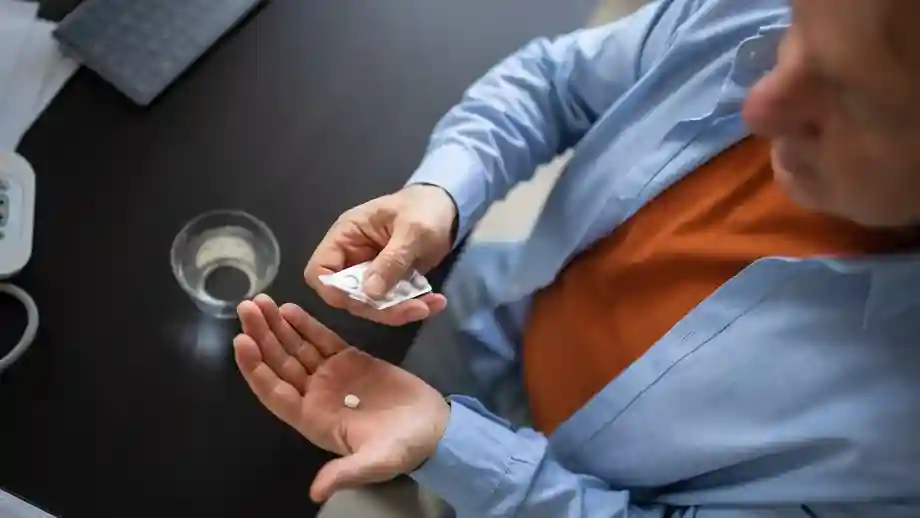New Parkinson’s Drug Tavapadon Offers Hope, Reducing Symptoms Without Side Effects
A promising new drug, tavapadon, has shown significant potential in treating Parkinson’s disease, offering relief from motor symptoms like tremors, stiffness, and coordination issues—without the common side effects associated with current treatments.
In clinical trials, tavapadon—a once-daily pill—has proven to be effective for patients already taking at least 400 mg of levodopa a day. It specifically benefits those experiencing “motor fluctuations,” a situation where levodopa’s effects wear off, causing symptoms to resurface. Researchers found that tavapadon provided more sustained “on time” (periods when symptoms are controlled) while reducing “off time” (when symptoms return), without the typical negative side effects that often accompany levodopa.
Levodopa has long been the standard treatment for Parkinson’s, but it can come with a range of side effects such as sleep disorders, hallucinations, and impulse control issues. Tavapadon works by mimicking dopamine in the brain and targeting different dopamine receptors (D1/D5), which offers the same symptom relief as levodopa but with fewer adverse effects.
Dr. Hubert H. Fernandez, the lead study author from the Cleveland Clinic, expressed optimism about tavapadon’s potential: “It provides patients with another option to alleviate motor fluctuations in the moderate to advanced stages of Parkinson’s. This is a promising step forward for both patients and doctors.”
The clinical trial, called TEMPO 3, was a multi-center, pivotal study that measured various side effects such as excessive daytime sleepiness, weight gain, and blood pressure changes. Remarkably, the side effects from tavapadon were no worse than those experienced by patients receiving a placebo.
Dr. Fernandez cautioned that while the results are promising, this study was short-term, and further long-term research is needed to fully confirm the drug’s benefits. Nonetheless, he remains hopeful, saying, “We’re very encouraged by these preliminary findings. Whether used at the beginning of treatment or alongside levodopa for more advanced cases, tavapadon represents a significant gain for Parkinson’s patients.”
For recently diagnosed patients with less severe symptoms, tavapadon may replace levodopa altogether, potentially reducing the need for frequent doses of the standard drug. This could minimize the risk of motor fluctuations and dyskinesia (involuntary movements), which are common side effects of levodopa use over time.
For more advanced Parkinson’s cases, tavapadon can be used in combination with levodopa, providing more consistent symptom relief without the typical side effects.
Parkinson’s disease is expected to become a global health crisis, with cases projected to increase to 25 million worldwide by 2050. The biggest surge is expected among people aged 80 and older, with the number of cases in that age group predicted to rise by 196%. This highlights the urgent need for improved treatments like tavapadon.
AbbVie, the pharmaceutical company behind tavapadon, is preparing to file for approval with the U.S. Food and Drug Administration (FDA). Once submitted, the FDA will review the application, which could lead to the drug being approved for widespread use. If approved, tavapadon could offer a new, more effective treatment option for people living with Parkinson’s disease, improving their quality of life and providing a much-needed alternative to existing therapies.
Dr. Mary Ann Picone, a medical director at Holy Name Medical Center, praised the trial results, calling the drug “very interesting and encouraging” for Parkinson’s patients. She highlighted that one of the major challenges of current Parkinson’s treatments is the wearing-off phenomenon, where the drug’s effects diminish over time, leading to “freezing” episodes and increased stiffness.
Tavapadon’s ability to target different dopamine receptors could extend the beneficial effects of treatment, offering patients more “on time” without the involuntary movements that often interfere with their ability to function. As Dr. Picone noted, this new therapy could be a game-changer in improving quality of life for those living with Parkinson’s.
As the long-term clinical trials continue, there’s growing hope that tavapadon will become a vital part of Parkinson’s treatment. With its potential to reduce motor symptoms and side effects, this new drug could offer a better, more sustainable treatment option for patients at every stage of the disease.
Stay tuned for further updates as the FDA review process moves forward, with the possibility of a new chapter in Parkinson’s disease treatment just around the corner.
This article was rewritten by JournosNews.com based on verified reporting from trusted sources. The content has been independently reviewed, fact-checked, and edited for accuracy, neutrality, tone, and global readability in accordance with Google News and AdSense standards.
All opinions, quotes, or statements from contributors, experts, or sourced organizations do not necessarily reflect the views of JournosNews.com. JournosNews.com maintains full editorial independence from any external funders, sponsors, or organizations.
Stay informed with JournosNews.com — your trusted source for verified global reporting and in-depth analysis. Follow us on Google News, BlueSky, and X for real-time updates.














